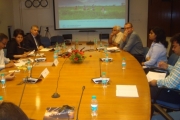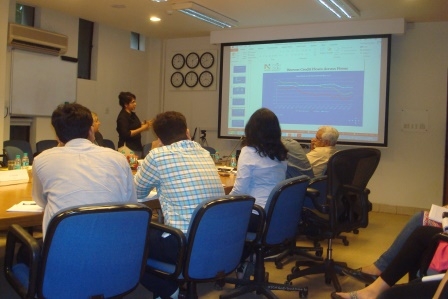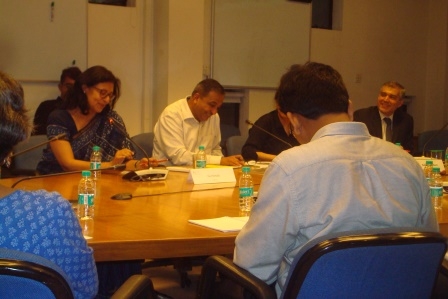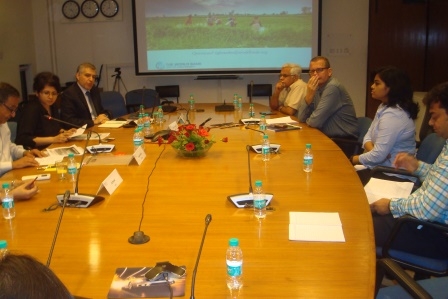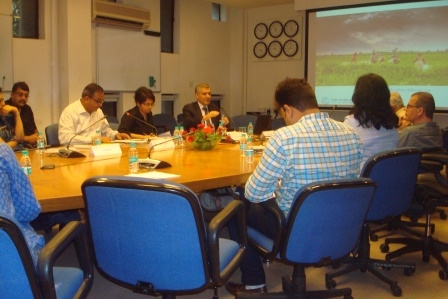In the week that will see a major change of guard at the Reserve Bank of India, and against the backdrop of a new monetary policy framework for India that is rapidly being put in place, NCAER organised a discussion with Dr Frederico Gil Sander (World Bank, New Delhi) based around the World Bank’s June 2016 India Development Update: Financing Double-digit Growth. Dr Ila Patnaik (NIPFP) and Dr Pallavi Choudhuri (NCAER) joined as discussants.
Indian GDP grew at 7.6 percent in 2015-16, up from 7.2 percent a year ago, making it the world’s fastest growing major economy. But India’s ambition is to accelerate GDP growth to double digits. Does India have a financial sector that can finance and sustain such spectacular growth?
Financing such growth requires a strong financial sector to grow savings, allocate them to more productive investment opportunities, boost productivity growth, and guard against volatility. India’s financial sector has performed well in several respects, evolving from largely state-control to greater competition from private banks, bank capital in excess of regulatory requirements, stronger regulations, and overall resilient real credit growth. But there are now deep concerns about the growing volume of non-performing assets (NPAs) and declining credit growth in the public sector banks (PSBs), as well as the muted transmission of monetary policy to the real economy, with lending rates sticky and interest rate spreads growing. The Update suggests two key reforms. First, accelerating structural transformation towards more market-orientation and competition by providing a roadmap for easing government mandates on banks. Second, addressing the NPA challenge, both by recapitalization of PSBs and providing tools for banks to manage stressed assets, and through stronger governance of both commercial banks as well as the corporate sectors that have generated the largest share of NPAs. The seminar provided a platform for lively discussion on the topic.
Frederico Gil Sander is the World Bank’s Senior Country Economist based in New Delhi. He was most recently the Bank’s Senior Country Economist for Malaysia and has worked on macro and debt management for Thailand, Laos, Cambodia, and Myanmar, and on debt relief for low-income countries. Before joining the Bank he worked on emerging market debt and capital markets at the New York firm of Bear Stearns. Sander has a PhD in Political Economy from Princeton’s Woodrow Wilson School.
Ila Patnaik has been a Professor at the National Institute of Public Finance and Policy since 2006. During 2014 to 2016, she was the Principal Economic Advisor in the Ministry of Finance to the Government of India. Prior to joining NIPFP, she worked as the Economics Editor at the Indian Express. Patnaik started her professional career as an economist at NCAER in 1996. She has a PhD from the University of Surrey.
Pallavi Choudhuri is an Associate Fellow at NCAER. Prior to joining NCAER, Choudhuri taught at Grand Valley State University and the University of Wyoming. Choudhuri has a PhD from the University of Wyoming.






